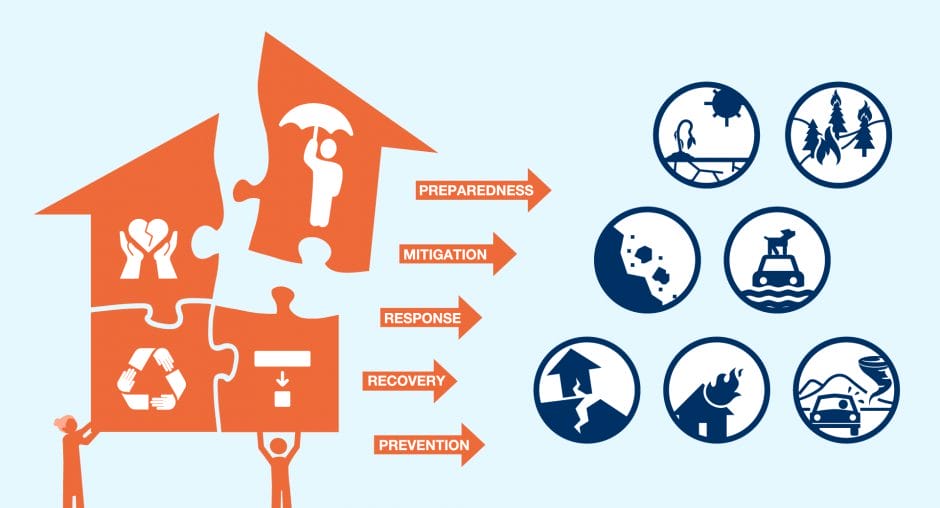Navigating the Future: The Critical Role of Disaster Risk Management
October 30, 2023 2023-10-31 14:53
Navigating the Future: The Critical Role of Disaster Risk Management
Introduction
Disasters are an unwelcome reality of our world. From natural calamities like hurricanes and earthquakes to human-made crises such as industrial accidents or pandemics, the impact of disasters can be devastating. However, what sets societies apart is how well they prepare for and respond to these inevitable events. Enter Disaster Risk Management (DRM), a comprehensive approach that empowers communities to mitigate, prepare for, respond to, and recover from disasters. In this article, we will explore the fascinating world of DRM, its significance, and how it shapes our future in an ever-changing world.
Understanding Disaster Risk Management
Disaster Risk Management is more than just a buzzword; it’s a lifeline for communities worldwide. It encompasses a range of strategies and measures designed to minimize the potential risks associated with disasters. These strategies include hazard assessment, disaster preparedness, early warning systems, effective response coordination, and long-term recovery planning.
The Power of Knowledge and Data
One of the pillars of DRM is knowledge—knowing the risks, vulnerabilities, and potential impacts. To understand and manage these aspects effectively, data plays a pivotal role. Modern technology, such as Geographic Information Systems (GIS), satellite imagery, and climate modeling, equips us with the ability to predict disasters and assess their potential consequences.
Community Resilience
DRM doesn’t just stop at preparedness; it’s about building resilience. Resilience refers to a community’s ability to absorb shocks, adapt to changing circumstances, and quickly recover. It involves community engagement, education, infrastructure development, and sustainable practices. The goal is to ensure that communities not only survive but thrive in the face of adversity.
Global Collaboration
Disasters often transcend borders, making international cooperation essential. Organizations like the United Nations Office for Disaster Risk Reduction (UNDRR) work to create a global framework for DRM. Sharing knowledge, resources, and best practices across nations can significantly enhance our collective ability to manage disasters.
The Human Element
While technology and infrastructure are critical, the human factor cannot be overstated. Preparedness campaigns, evacuation drills, and community training programs are vital components of DRM. When people are informed and engaged, the entire disaster management process becomes more effective.
A Glimpse into the Future
As our world becomes more interconnected and urbanized, the challenges of disaster management evolve. Climate change brings about unpredictable weather patterns, while rapid urbanization increases vulnerability. The growing importance of digital technology offers new tools and solutions, but it also introduces cybersecurity risks.
Empowering the Future Generation
Education is an essential element of DRM. Teaching future generations about disaster preparedness and risk reduction ensures that knowledge is passed down and disaster resilience is ingrained in society’s fabric.
Conclusion
Disaster Risk Management is not just a reactive approach to disasters; it’s a proactive strategy that can save lives, protect livelihoods, and preserve our environment. By investing in DRM, we invest in a safer and more resilient future for ourselves and generations to come.
The link provided here (https://youtu.be/6hJzqdSUKI0) offers an insightful video that delves deeper into the world of Disaster Risk Management, providing real-world examples and practical insights. We encourage you to watch it and become a part of the movement to create a safer, more resilient world for all.
Navigating the Future: The Critical Role of Disaster Risk Management
October 30, 2023 2023-10-31 14:53Popular Tags






















